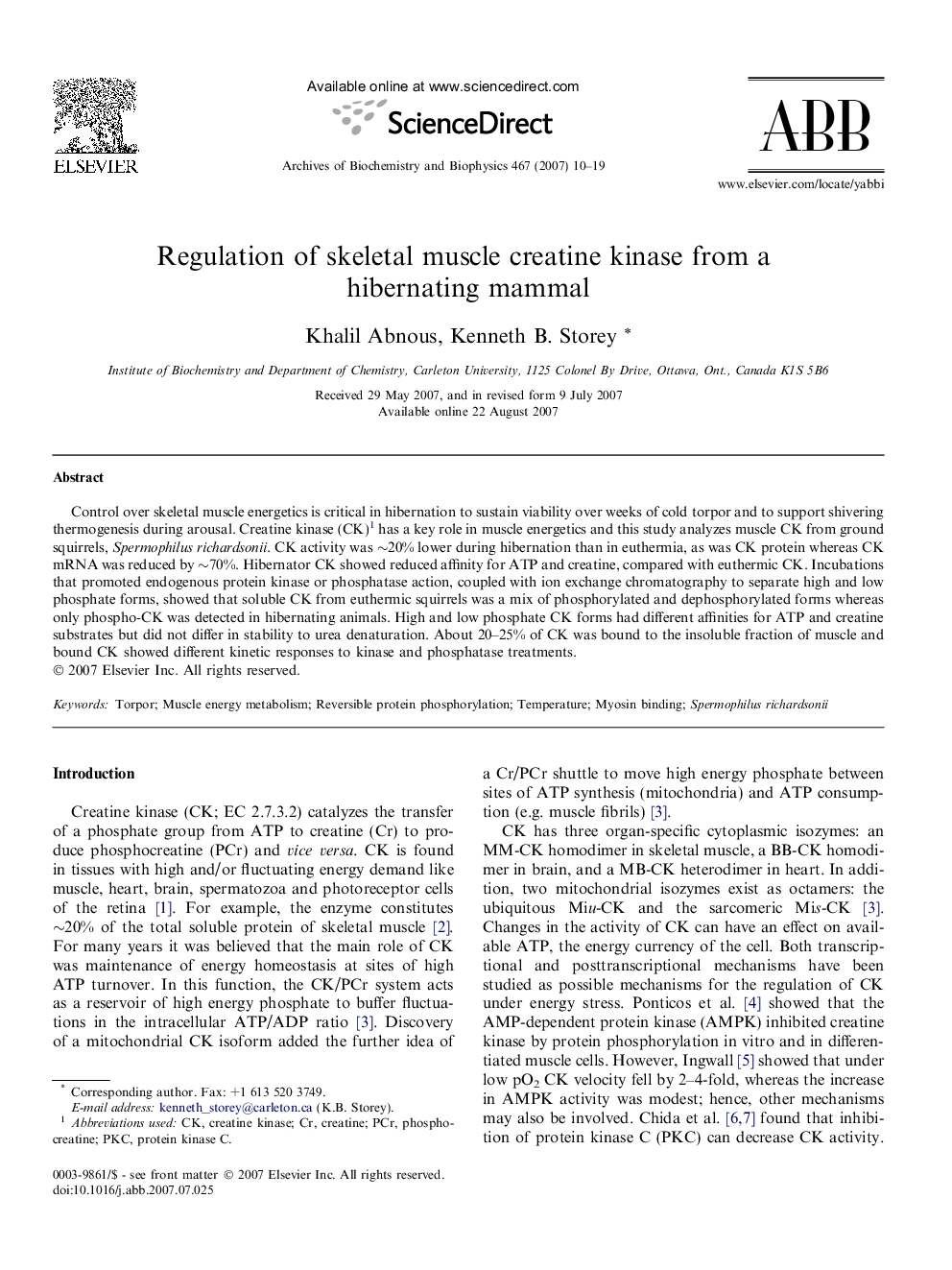| Article ID | Journal | Published Year | Pages | File Type |
|---|---|---|---|---|
| 8292056 | Archives of Biochemistry and Biophysics | 2007 | 10 Pages |
Abstract
Control over skeletal muscle energetics is critical in hibernation to sustain viability over weeks of cold torpor and to support shivering thermogenesis during arousal. Creatine kinase (CK)1 has a key role in muscle energetics and this study analyzes muscle CK from ground squirrels, Spermophilus richardsonii. CK activity was â¼20% lower during hibernation than in euthermia, as was CK protein whereas CK mRNA was reduced by â¼70%. Hibernator CK showed reduced affinity for ATP and creatine, compared with euthermic CK. Incubations that promoted endogenous protein kinase or phosphatase action, coupled with ion exchange chromatography to separate high and low phosphate forms, showed that soluble CK from euthermic squirrels was a mix of phosphorylated and dephosphorylated forms whereas only phospho-CK was detected in hibernating animals. High and low phosphate CK forms had different affinities for ATP and creatine substrates but did not differ in stability to urea denaturation. About 20-25% of CK was bound to the insoluble fraction of muscle and bound CK showed different kinetic responses to kinase and phosphatase treatments.
Keywords
Related Topics
Life Sciences
Biochemistry, Genetics and Molecular Biology
Biochemistry
Authors
Khalil Abnous, Kenneth B. Storey,
